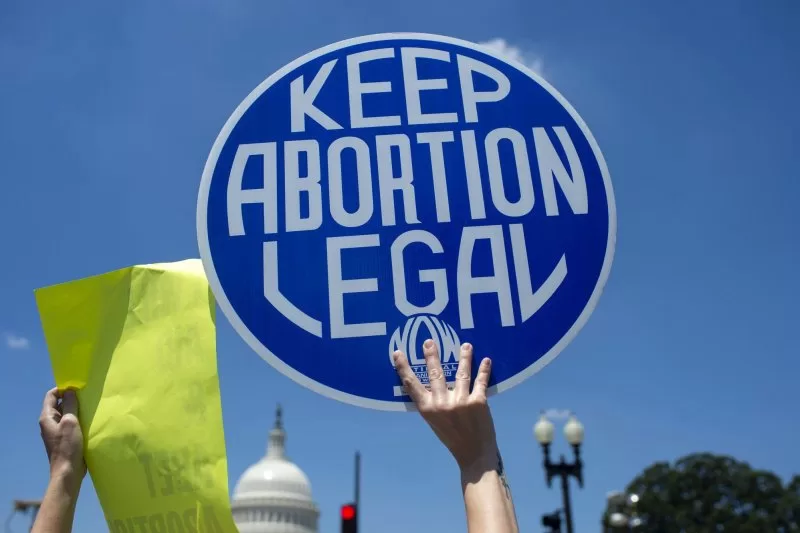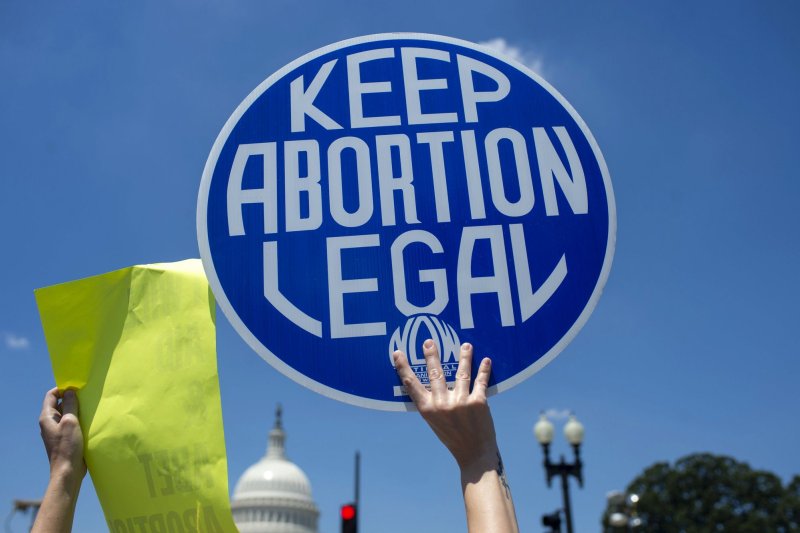Abortion-rights activists and the Planned Parenthood Action Fund hold a demonstration in Washington, D.C., over the overturning of Roe vs. Wade abortion rights (2022). The Georgia Supreme Court on Monday rejected a lower court’s ruling that says the state’s near-total abortion ban was unconstitutional. That ban has been in effect since after the conservative-leaning U.S. Supreme Court revoked federal protections for abortion by overturning the landmark 1973 Roe vs. Wade ruling. File Photo by Bonnie Cash/UPI |
License PhotoOct. 7 (UPI) — The Georgia Supreme Court on Monday rejected a lower court’s ruling that says the state’s near-total abortion ban was unconstitutional, according to news reports.
Last Monday, Fulton County Superior Court Judge Robert McBurney’s ruling said Georgia’s abortion law was unconstitutional, which then temporarily allowed the medical procedure to be performed even if there was a detection of a fetal heartbeat.
“Liberty in Georgia includes in its meaning, in its protections, and in its bundle of rights,” he said last week, “the power of a woman to control her own body, to decide what happens to it and in it, and to reject state interference with her healthcare choices.”
But the state’s high court decision, in effect, returns Georgia’s six-week abortion ban that was signed into law in 2019 by two-term Gov. Brian Kemp, a Republican.
That law provides full legal recognition to fetuses and bans the medical procedure after cardiac activity is detected, which generally occurs around the six-week mark — a time before most women know they are pregnant.
“When a fetus growing inside a woman reaches viability, when society can assume care and responsibility for that separate life, then — and only then — may society intervene,” McBurney wrote last week.
On Wednesday after McBurney struck down the controversial law, Georgia’s Republican Attorney General, Chris Carr, asked the state’s Supreme Court to reinstate the so-called “Living Infants Fairness and Equality Act,” arguing in his appeal that there is no privacy right to abortion.
The ban has been in effect since 2022 after the conservative-leaning U.S. Supreme Court revoked federal protections for abortion by overturning the landmark 1973 Roe vs. Wade ruling.
And the issue has taken a prominent role in this year’s election, with Vice President Kamala Harris making individual “freedom” a facet to her campaign. Meanwhile, the Republican nominee, ex-President Donald Trump, has more than once taken credit for overturning 50-year-old Roe vs. Wade protections.
A Georgia ACLU official was critical of the Peach State’s elected officials, saying they are disrespecting Georgia women.
“We will persist, using all lawful means to restore dignity, full citizenship and a right to privacy for Georgia’s women,” said executive director Andrea Young.
Monica Simpson, executive director for SisterSong Women of Color Reproductive Justice Collective, called Monday’s decision by Georgia’s highest court “unconscionable.”
“Denying our community members the lifesaving care they deserve jeopardizes their lives, safety, and health — all for the sake of power and control over our bodies,” she added.

